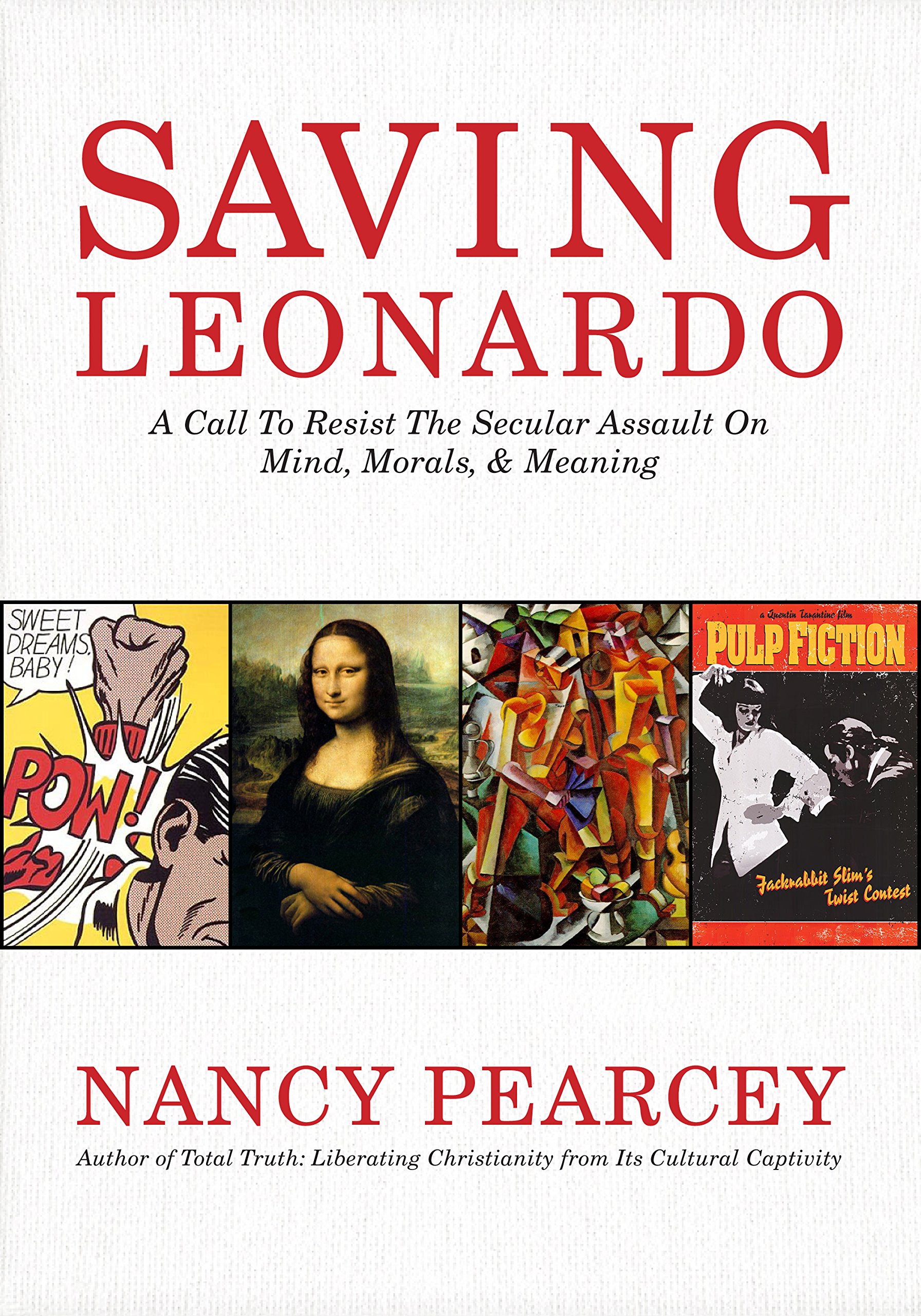A Brief Book Summary from Books At a Glance
By Steve West
About the Author
Nancy Pearcey is a Christian intellectual who has lectured widely and has published several influential books in the areas of Christian worldview and society.
Introduction
Saving Leonardo surveys the development of Western worldviews throughout history, paying special attention to how the arts communicate worldview themes. Art is both shaped by philosophy and culture, and shapes philosophy and culture. Pearcey traces out the main divergences in secularism (Rationalism/Empiricism; Continental Philosophy/Analytic Philosophy; Enlightenment/Romanticism; Fact/Value), and compares them with the Christian worldview. Given her purposes she paints with a broad brush, but her analysis is not lacking in depth or cogency.
Table of Contents
Introduction: Why Americans Hate Politics
Chapter 1 Are You an Easy Mark?
Chapter 2 Truth and Tyranny
Chapter 3 Sex, Lies, and Secularism
Chapter 4 Crash Course on Art and Worldview
Chapter 5 Beauty in the Eye of the Machine
Chapter 6 Art Red in Tooth and Claw
Chapter 7 Romancing the Canvas
Chapter 8 Escape from Nihilism
Chapter 9 Morality at the Movies
Epilogue: Bach School of Apologetics
Summary
Chapter 1: Are You an Easy Mark?
John Erickson’s children’s tales Hank The Cowdog were turned into a TV show. Erickson was shocked when he realized that the family unit and the setting of his stories had been coopted by a secular ideology. Many important details had been changed, and the show now portrayed a politically correct ideology. Secular ideologies are being distributed around the globe. Media is a main purveyor of these ideas, and media reaches into even the most rural areas. What is taught in philosophy classrooms and universities does trickle down into the culture at large. Art, music, and literature is a mirror of culture and also shapes culture. The impact of The Da Vinci Code shows how influential a novel can be in shaking people’s faith. Secularists have won over university departments and have been able to shape opinion and worldviews while conservatives and Christians withdrew. The morals and values of our nation’s Christian heritage are eroding, and many can’t even recognize the changes. Rome was filled with philosophies, and the early Christians argued about truth and worldview-level issues. We need to do the same today. We need to conquer the intellectual realm. Because of non-Christian thinking, many people won’t even consider the gospel until their worldview assumptions have been challenged. Some Christian parents do not want their children exposed to the reasons why others are not believers, but studies have shown that children are far more likely to retain their faith if they can ask questions and receive solid answers. Teens need to be able to have their doubts met with respect and intellectually satisfying reasons for faith.
We need to understand the worldviews of others, not so we can categorize and critique them, but so that we can love them and help them know the truth. Although the media doesn’t report this, even though secularism is growing around the world, so is Christianity and religion. The face of global Christianity has shifted away from the West. Even as societies modernize and embrace science, religion is growing. This is true even amongst intellectuals. Amongst students, there is a resurgence of interest in religion.
Chapter 2: Truth and Tyranny
Far too many Christian young people have their own views on morality, but have adopted the secular view that they should be relativistic about the values of others. Although these Christians are not secular empiricists, they have followed that epistemology and differentiated between facts and values. This distinction lies at the heart of the Western mind. Christians say that certain things are true, but they also need to recognize the nature of truth as universal. In the secular dichotomy, there are scientific facts that are objective and universal, and then there are values which are individual, subjective, and relativistic. As much as there has been a great deal of talk about postmodernism, people today tend to be selectively postmodern: they are modernists for facts, but postmodernists for values. Many Christians are comfortable allowing other people to hold to their own sets of moral convictions, which then become right for them. Christianity used to be assessed on the basis of reason and evidence, but now it is assessed more as a subjective preference. People often accuse Christians of being bigots rather than arguing that their view is false.
[To continue reading this summary, please see below....]The remainder of this article is premium content. Become a member to continue reading.
Already have an account? Sign In
